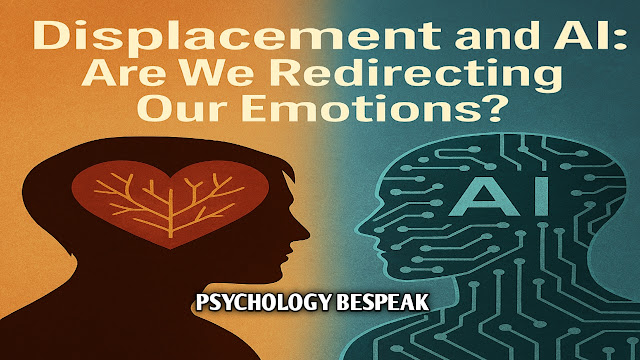Guru Purab and the Psychology of Presence
🌅
Guru Purab and the Psychology of Presence
On November 5, 2025, we celebrate Guru Purab—the birth anniversary of
Guru Nanak Dev Ji, the founder of Sikhism and a beacon of truth, equality, and
devotion. Born in 1469 in Nankana Sahib (now in Pakistan), Guru Nanak Dev Ji’s
teachings continue to guide millions across the world. Founder of Sikhism and
the first of the ten Sikh Gurus, His message was simple yet profound: There is
one God, and all humans are equal. He taught us to remember God’s name (Naam
Japna), live honestly (Kirat Karni), and share with others (Vand
Chakna). These principles form the heart of Sikh life.
On this sacred day,
we companion the teachings of Guru Nanak Dev Ji—not as distant doctrine,
but as living rhythm—not to perform, but to presence. The teachings of Guru
Nanak Dev Ji offer more than spiritual guidance; they invite psychological
attunement.
Psychological Effects of Guru Nanak Dev Ji’s teachings:
🕊️ Naam Japna: The
Practice of Inner Anchoring
Meditation on Waheguru
is not escape—it’s anchoring. In psychology, this mirrors mindfulness
and self-regulation. The child meditating beneath the sunrise reminds
us: repetition creates rhythm, and rhythm creates safety.
🌱 Kirat Karni: The Psychology of Honest Work
Kirat Karni aligns
with self-determination theory and intrinsic motivation. Guruji planting a
sapling with a child reflects agency and task orientation. In
developmental psychology, this is how identity forms—through meaningful action,
not abstract ideals.
🍲 Vand Chakna: Sharing
as Emotional Regulation
Vand Chakna nurtures
empathy and prosocial behavior. To share is to regulate. The visual of hands
offering food echoes prosocial behavior and empathy. In
therapeutic terms, it’s co-regulation—holding space for others while staying
grounded ourselves.
🫓 Langar: Equality as Emotional
Truth
Langar is not just a
meal—it’s a mirror. Langar fosters social inclusion and reduces
prejudice. Everyone seated together reflects unconditional positive regard,
a core principle in humanistic psychology. No hierarchy, no performance—just
presence.
🌟 Why It Matters
Today
In a world often
divided, Guru Nanak’s teachings remind us to live with compassion, humility,
and unity. His light continues to guide us—across generations and borders.
We shape. We share.
We rest.
This Guru Purab, may
we companion not just the teachings, but the emotional architecture behind
them. Psychology begins with presence—and Guruji’s path reminds us: that is
enough.
If you’d like to experience the visual shimmer of this reflection, you’re warmly invited to click the link below.
Wishing you all a
very Happy Guru Purab.
Which teaching of
Guru Nanak Dev Ji do you feel most connected to, and why?
If you like this
please like, share and subscribe😊🙏
For those walking a
path of inner transformation, this may offer quiet support: 👉 The Charismatic Guru Nanak (Affiliate link—shared gently)
Explore more
reflections:
👉 Anger
Mangement– Gentle tools for inner clarity
👉
Feeling depressed, sad, feel empty or worthless and want to be out of it BRIGHTER
SIDE OF LIFE
👉 Ever
Powerful OM – For those seeking
transformation through presence
👉
TO
BE A WINNER BE DEAF TO NEGATIVITY – A reminder to protect your inner space










Comments
Post a Comment